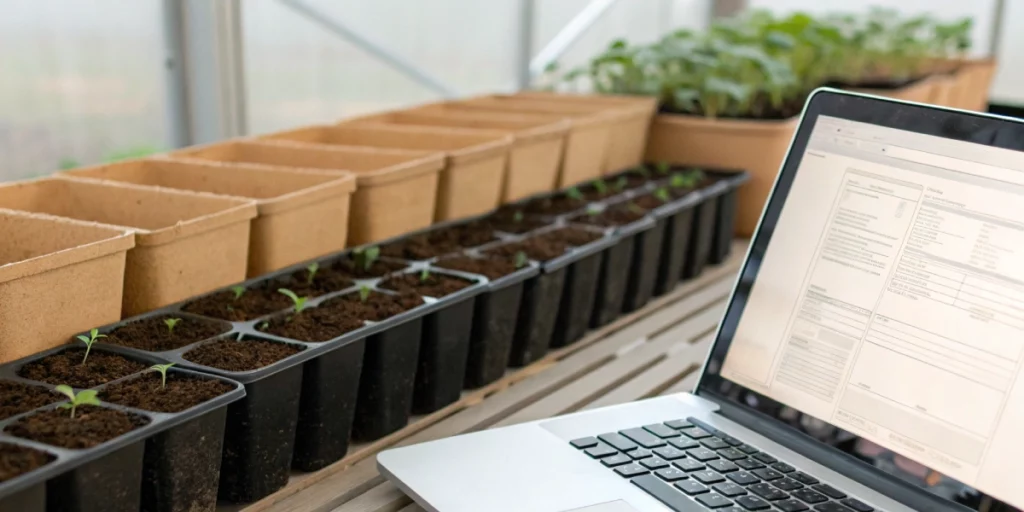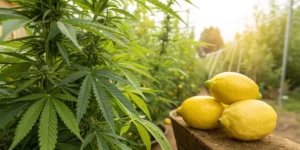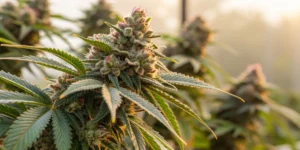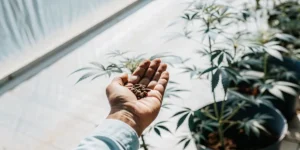Exploring Online Cannabis Seed Laws
Federal vs. State Regulations
States and the federal government enforce distinct rules governing cannabis seed sales. Federal statutes classify cannabis under the Controlled Substances Act, which prohibits any distribution across state lines. However, individual states have launched their own frameworks for permitting seed sales within their borders. Therefore, businesses must navigate both layers of regulation before shipping seeds. Customers should confirm state guidelines to avoid violating federal trafficking provisions while enjoying state-sanctioned access.
State regulators update statutes regularly to reflect evolving public opinion and court rulings. In some states, legislators expanded medical exceptions or decriminalized possession up to specific plant counts. Others still enforce strict prohibition, carrying hefty fines or criminal charges for unauthorized sales. Consumers must track legislative changes to ensure compliance. As soon as lawmakers vote on new cannabis bills, stakeholders receive amended rules that can affect domestic seed availability and shipping requirements.
International Treaties and Agreements
International narcotics conventions influence how countries control cannabis seeds beyond national laws. Treaties like the Single Convention on Narcotic Drugs require signatory nations to restrict cultivation and distribution unless approved for scientific or medical use. Countries that ratified these agreements must harmonize domestic statutes with global obligations. Hence, while some European states permit recreational seeds, they still report data to international bodies to avoid treaty violations.
Bilateral agreements may further shape cross-border seed traffic. Nations may negotiate import quotas or share best practices on age verification. For example, Canada and certain EU members have memorandums to streamline medicinal seed exchange. Conversely, regions lacking formal accords may intercept shipments more aggressively. Buyers must research both treaty provisions and auxiliary agreements to forecast customs scrutiny and legal exposure during international orders.
How Seed Classification Affects Legality
Authorities classify cannabis seeds based on THC content, intended use, or breeding status. High-THC seeds destined for recreational markets often face tighter restrictions than industrial hemp seeds containing negligible psychoactive compounds. Therefore, sellers list potency on product pages, and regulators test batches to verify compliance. When seeds violate classification thresholds, officials may seize shipments and levy penalties.
Moreover, some jurisdictions distinguish between feminized, regular, and auto-flowering seeds, imposing different licensing criteria. Commercial breeders often register their strains with agricultural departments, whereas hobby growers may purchase only certified hemp varieties. Classification impacts who can legally purchase and how suppliers fulfill orders. Prospective buyers must verify seed labels against local definitions to stay within legal parameters.
Jurisdictional Differences Across Regions
North America: U.S. & Canada
In the United States, each state crafts its own cannabis seed legislation. States like California and Colorado permit both medical and recreational seed sales, while others allow only medical distribution. Federal law still outlaws interstate shipments, so sellers restrict shipping routes to intrastate orders. Buyers in legal states rely on licensed dispensaries or in -state vendors to avoid crossing prohibited boundaries.
Canada legalized recreational cannabis nationwide in 2018, including seed commerce. Licensed producers may ship seeds across provincial lines under federal oversight. Buyers only need to confirm provincial age requirements and place orders through approved suppliers. Consequently, Canadian customers enjoy uniform access, provided vendors hold Health Canada permits and follow stringent packaging and labeling rules.
Europe: EU Member States
European Union countries share certain directives, but each member state enforces distinct cannabis seed rules. Germany and the Netherlands permit sales for hobby growers, subject to age checks and quantity caps. Meanwhile, France prohibits recreational seed orders altogether, permitting only industrial hemp varieties under EU regulation. Sellers often maintain country-specific storefronts to comply with varied national laws.
European buyers must check importer registration rules and local classification guidelines. Many EU states allow personal imports of seeds labeled “not for cultivation,” although customs may still intercept suspicious packages. Vendors comply by marking packages with proper declarations and using discreet labeling. Consumers need to stay aware of both EU-level regulations and national statutes before finalizing any online purchase.
Asia and Oceania Regulations
Asia generally enforces strict prohibition on cannabis-related products. Countries like Japan and Singapore treat unauthorized seed possession as a serious offense. Importers risk criminal prosecution, fines, and imprisonment if customs intercept shipments. Some exceptions apply for scientific research under government permits, but private buyers face near-zero tolerance.
Oceania displays more leniency: Australia allows hemp seeds with low THC under agricultural licenses, while New Zealand permits medical strains via registered suppliers. Recreational seeds still face barriers, and international orders often trigger customs holds. Buyers in these regions must secure proper licenses or purchase through approved local distributors to ensure seamless delivery. Additionally, growers sometimes report issues like cannabis seeds not germinating in paper towel, which can be due to shipping delays, poor storage conditions, or old seed stock—common concerns when ordering internationally.

Buying From Domestic vs. International Vendors
Benefits of Domestic Suppliers
Purchasing from local vendors reduces shipping delays and customs complications. Domestic sellers comply with in-state laws, ensuring each order meets regional packaging and labeling standards. Buyers receive faster deliveries, more predictable tracking, and customer support attuned to local regulations. Consequently, domestic purchases often result in smoother transactions and lower seizure risk.
Moreover, supporting local businesses fosters economic growth within legal markets. Licensed growers reinvest in community initiatives, research programs, and environmental sustainability. By choosing domestic suppliers, buyers strengthen regulated industries that emphasize quality assurance and transparent supply chains. This approach benefits both consumers and the broader cannabis ecosystem.
Risks of International Shipments
International orders carry higher interception rates and legal uncertainty. Customs agencies in many countries inspect seed shipments vigilantly, especially when colonies lack formal import agreements. Purchasers risk package seizure, fines, or criminal charges for unauthorized imports. Shipping carriers may also refuse to transport cannabis-related items to certain destinations.
Buyers face additional logistical hurdles, including longer transit times and variable tracking reliability. Exporting countries might require phytosanitary certificates or special permits, which domestic vendors often omit. As a result, international shipments can incur extra fees or lengthy clearance processes. Consumers must weigh convenience against potential penalties when ordering seeds from abroad.
Import/Export Compliance Requirements
Sellers and buyers must adhere to permit and certification rules for cross-border transactions. Shippers often obtain export licenses and phytosanitary documents from agricultural authorities. Importers in the destination country may need to secure import permits, pay duties, or provide laboratory test results verifying THC levels.
Furthermore, carriers may stipulate packaging standards, such as tamper-evident seals and clear labeling. Accurate paperwork reduces customs delays and seizure risk. Buyers should request compliance documentation before ordering and verify vendor credentials. Failing to meet import requirements can lead to confiscation of goods or financial penalties.
Compliance, Documentation, and Age Verification
Required Permits and Licenses
Most jurisdictions mandate that sellers hold business licenses or permits to distribute cannabis seeds. These credentials typically come from agricultural or health departments, ensuring quality control and regulatory compliance. Buyers can check vendor websites for license numbers or government approval seals to confirm legitimacy.
In some regions, personal cultivators must also register their seed possession. Licensing requirements vary based on seed type and intended use—medical, recreational, or industrial hemp. Individuals should review local statutes and apply for necessary permits before obtaining seeds. This proactive step reduces legal exposure and fosters responsible cultivation.
Age-Verification Procedures
Regulated markets enforce strict age checks to prevent underage access. Sellers use online identity verification systems or require copies of government IDs to confirm buyer age. Some platforms integrate third-party services that cross-reference public records, adding an extra compliance layer.
Failure to verify age properly can lead to license revocation and heavy fines. Therefore, vendors invest in robust age-check software and manual audits. Buyers should provide accurate information and follow vendor instructions carefully. Reliable age verification protects both sellers’ credentials and minors from unauthorized transactions.
Record-Keeping Best Practices
Maintaining accurate transaction records proves essential for compliance audits. Sellers document customer details, order quantities, and shipping dates in secure databases. They also retain copies of import/export paperwork and testing certificates for each seed batch.
Buyers benefit from keeping purchase confirmations, receipts, and compliance documents in one place. Organized record-keeping simplifies responses to legal inquiries or customs investigations. Using digital tools like encrypted cloud storage ensures data integrity and quick retrieval when regulators request proof of legal seed acquisition.
Risks, Penalties, and Legal Penalties
Criminal Penalties for Illicit Purchases
Individuals who bypass legal channels risk criminal charges. Law enforcement agencies may arrest buyers if customs intercept orders or if local police conduct sting operations. Convictions can result in fines, community service, or jail time depending on jurisdiction and quantity of seeds.
Moreover, repeat offenses often carry harsher sentences. Courts may impose probation periods alongside mandatory educational programs on cannabis laws. Prospective seed purchasers must recognize that even small orders can trigger severe repercussions in zero-tolerance regions.
Civil Fines and Seizure of Goods
Authorities impose civil penalties for noncompliance, such as monetary fines up to thousands of dollars. Customs agencies routinely destroy unauthorized seed shipments and may charge disposal fees. Buyers receive no reimbursement when carriers label items as prohibited.
Civil enforcement also includes asset forfeiture in severe cases. Officials can seize related equipment like ventilation systems or hydroponic gear linked to unauthorized cultivation. To avoid these risks, consumers should confirm both vendor compliance and local import regulations prior to purchase.
How to Mitigate Legal Exposure
To minimize legal risks, buyers should stick to licensed domestic vendors whenever possible. They can also seek legal counsel familiar with cannabis statutes in their region. Thorough research on import requirements and proper labeling significantly reduces seizure chances.
Furthermore, joining accredited growers’ associations offers access to educational resources and compliance updates. Networking with experienced cultivators helps newcomers navigate documentation and licensing steps. Taking these proactive measures ensures legal seed acquisition and promotes responsible cultivation practices.

FAQs about is it legal to buy cannabis seeds online
Can I legally purchase cannabis seeds for personal use?
Many regions permit personal seed purchases if you meet licensing and THC-threshold requirements. Always confirm state or national seed rules before ordering. Licensed vendors provide documentation to verify compliance, and following local statutes reduces risk of fines or seizure.
What shipping restrictions apply to cannabis seeds?
Shipping carriers may ban seeds to specific countries or states. Customs agencies enforce phytosanitary certificates and permit checks. Sellers typically disclose restricted destinations at checkout. Reviewing carrier policies and obtaining required permits prevents unexpected interception or return of your order.
How do I verify my order won’t be intercepted by customs?
Request tracking details and compliance certificates from your vendor in advance. Ensure they include accurate declarations and required export/import documents. Familiarity with destination country’s seed laws helps predict clearance outcomes. Proactive communication with the seller and local regulators enhances delivery success.





